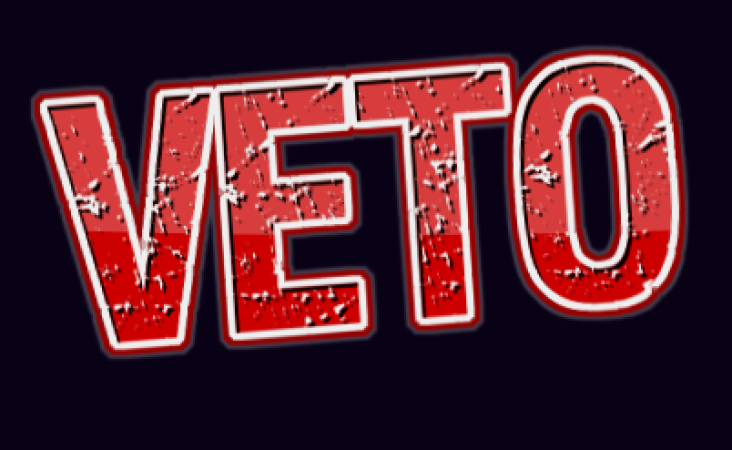We have reached sine die of the 2024 General Assembly legislative session. During this session, over a thousand individual bills and a nearly 500-page biennial budget were sent to the Governor. All of this must be reviewed and acted upon by Governor Glenn Youngkin (R) before the April 17th reconvened session.
There may be hundreds of bills on the Governor’s desk worthy of his veto. Additionally, Democrats inserted partisan policy decision within the budget in such a way the Governor may need to veto it in its entirety. As Senator Creigh Deeds (D-Charlottesville) noted in his end of session constituent letter: “The budget includes items the Governor does not support, and some of those may be difficult for the Governor to veto because they are woven into the fabric of the budget itself. Speculation is rampant that he may opt to veto the budget, which would set us up for another prolonged budget debate.”
Governor Youngkin should not hesitate to use his veto pen liberally, including on the budget. As Terry McAuliffe said, “The veto is not a decision I take lightly, but it is a necessary tool to prevent harmful legislation from becoming law. I will continue to stand up for the values and priorities of the people of Virginia by exercising this authority judiciously.” Governor McAuliffe had the highest number of vetoes in recent years when he faced Republican majorities in both chambers and vetoed 49 bills in 2017, and 120 during his entire term.
Governor Northam had two years with Republicans running both chambers and he vetoed 54 bills over that span. Governor Youngkin has already vetoed 8 bills this session and 33 in 2022. It is time for the Governor to set a new veto record, as this General Assembly, with most of its moderate members now retired, passed many bills they knew would be vetoed. In fact, many of the bills sent to Governor Youngkin this session were bills the Democrats failed to pass in previous sessions.
The Thomas Jefferson Institute believes the following bills and budget provisions would have the greatest negative economic impact on the Commonwealth. We were vocal in our opposition to these bills as they were being considered, testified in opposition when we could, and have communicated our concerns with the Governor and his staff. This is just part of the overall list of veto-worthy legislation.
If you would like to express your opposition to the Governor (or your support for him to veto or reject these provisions), you can call his office at (804) 786-2211 or email your concerns directly to glenn.youngkin@governor.virginia.gov.
Minimum Wage Increase and
Expansion to Migrant Workers
CALL TO VETO HB1/SB1 and HB157
The bill that causes the most harm, especially to low- and moderate-income families, is the increase in the minimum wage, despite its good intentions. This bill increases the minimum wage to $13.50 per hour next year and $15 per hour the year after. A related bill removes the exemption for migrant workers, which means struggling farmers across the Commonwealth will have to pay significant increases in wages to their migrant laborers (an estimated 75 percent of all agricultural workers in Virginia are migrant workers) or find ways to forgo as much migrant labor as possible. These costs will be passed on in the form of higher prices for food and services. This bill will have a far greater negative impact on the poorer regions of Virginia. In short, this bill would undermine the job growth Gov. Youngkin has produced in the Commonwealth, will hurt those it claims to help, and will reduce our competitiveness with other states at a time when people are moving out of Virginia.
Paid Family and Medical Leave
CALL TO VETO HB373
This bill creates the largest payroll tax in the Commonwealth’s history. Specifically, it creates a state-run insurance program by charging an estimated 1% payroll tax divided between employers and employees. This fund will provide 12 weeks of 80 percent of wages for employees taking family or medical leave. This is a massive tax increase that will be borne mostly by employees (employers shift the cost of employee taxes on to employees by paying them lower wages). Businesses will struggle to comply due to the increase in both the number of employees who take leave and the length of leave they take. Small businesses will struggle to pay the taxes and maintain the position of employees on prolonged leave. It is not a coincidence that the 13 states that already have paid family and medical leave are the states with the highest unemployment rates, lowest job growth, and highest number of people and businesses leaving their states. In short, this bill will create a $1.5 billion per year (and growing) government entitlement that will harm small business and make Virginia less competitive.
Class Action Lawsuits
CALL TO VETO HB418
Virginia is one of only two states that does not allow petitioners to seek or create “classes” for the purpose of civil liability claims (class action lawsuits). This bill would make class action law suits a new risk of doing business in the Commonwealth. This bill will increase civil liability claims and thus increase insurance costs. It will also increase the workload of our already overburdened courts. This bill would remove a competitive advantage of doing business in the Commonwealth and it would stifle innovation by redirecting money away from productive and creative uses to fund legal departments and outside counsel. Again, the greatest impact will be felt by smaller businesses who will be more likely to settle class action civil claims against them rather than fight – even if those cases are likely frivolous. In short, this bill will increase the workload of the courts, divert funds from productive uses to legal and insurance fees, and will have little to no impact on injuries and death.
Business to Business Digital Sales Tax
CALL TO VETO HB30, Part 4, 4th Enactment Clause
The largest and most economically damaging tax increase of the 2024 session is the expansion of the sales and use tax to digital products and services, including certain purchases made by businesses. Business to business transactions are usually exempt from the sales tax, so this is a major policy change. Only a handful of states tax these transactions, so Virginia will suffer a competitive disadvantage. To accomplish it the legislature set out the entire sales tax code section in the final part of the budget and then proceeded to amend it. It then proceeded to spend an additional $2 billion of expected new revenue. This provision, which is a distinct item within the budget bill, deserves to be vetoed. Doing so, of course, then throws the 2024-2026 budget far out of balance. In short, this new tax is regressive (hurting the poor the most), pyramids taxes on top of taxes that will be passed on in higher prices, and makes Virginia less competitive.
Regional Greenhouse Gas Initiative
CALL TO VETO HB 29 and 30, Item 381, Paragraph C.
The proposed budget bill also includes a language provision ordering the Governor and the Air Pollution Control Board to reinstate Virginia’s membership in the Regional Greenhouse Gas Initiative. Virginia just left that multistate cap and trade compact at the end of 2023. In just three years it had forced utilities to pay Virginia $830 million for permits to burn coal and natural gas for electricity, money which ultimately was or will be paid by customers. It is nothing but a carbon tax and has no actual effect of lowering the use of those fuels, beyond the effect of raising their cost. The General Assembly majority Democrats have placed this provision as a single paragraph within the Secretary of Natural Resources budget, but if a veto is permitted under the rules, the Governor should reject this reversal of his previous policy. In short, this bill is a carbon tax that is ultimately paid by Virginia ratepayers and does not reduce carbon emissions.
Sales and Use Tax for Localities/Schools
One tax increase cleared the General Assembly with so many votes, including numerous Republicans, that a veto will not succeed unless some members change their minds. House Bill 805 and Senate Bill 14 allow most Virginia cities and counties to increase the sales tax another 1%, with the funds dedicated to educational capital projects (buildings and equipment). The law requires that a local referendum be held first, but that does not relieve legislators of their responsibility of the outcome. Given all the other pressures being added on family budgets by the 2024 General Assembly, these bills are ripe for veto and should not have the Governor’s signature. In short, this is a massive new tax to fund capital projects for public education at a time when enrollment in our public schools is decreasing.
Procurement Set Asides
CALL TO VETO HB1404
This bill increases the Small, Women and Minority (SWaM) procurement set asides, with goals of 42 percent for small business direct procurement of discretionary executive branch spending and 50 percent of SWaM set aside for subcontracts by non-SWaM contracts with an overall goal of 23.1 percent of certified women owned and minority owned business utilization in all discretionary spending by covered institutions. It is likely that contract bid prices will be higher as competition will be more limited. This bill will also continue the unhealthy racializing and gendering in contracting instead of focusing on price and quality of services. It may encourage “fraudulent” behavior as contractors reorganize or cheat to qualify for SWaM status, again adding complexity and costs with no added benefit to agencies. It also violates equal justice standards with racial preferences that are incompatible with the Constitution. In short, this bill is unconstitutional, will continue to fuel racial and gender animosity, will lead to fraud and gamesmanship, and will add costs to most contracts.
Bad Faith Claims in Motor Vehicle Insurance
CALL TO VETO SB256
This bill would establish a new tort of insurance bad faith with the right to impose penalties of double the personal injury or wrongful death (up to $500,000 plus lawyers’ fees) on motor vehicle insurers who fail to make “reasonable and timely” settlement offers to insureds or in cases of uninsured/underinsured benefit claims. Such “bad faith claims” (of which there have only been a handful over the last five years) are currently handled by the SCC. The AIPC released an analysis that concluded this bill, to address a problem that is uncommon, could increase insurance premiums for individuals and businesses in the Commonwealth between 5.6 percent and 14.3 percent, with a median estimated impact of 9.9 percent premium increase per year. In short, at a time when insurance policies are up more than twenty percent already, this additional increase of 9.9 percent will be a massive cost that will certainly impact the poor disproportionately.

Derrick Max is the President and CEO of the Thomas Jefferson Institute and can be reached at dmax@thomasjeffersoninst.org.






